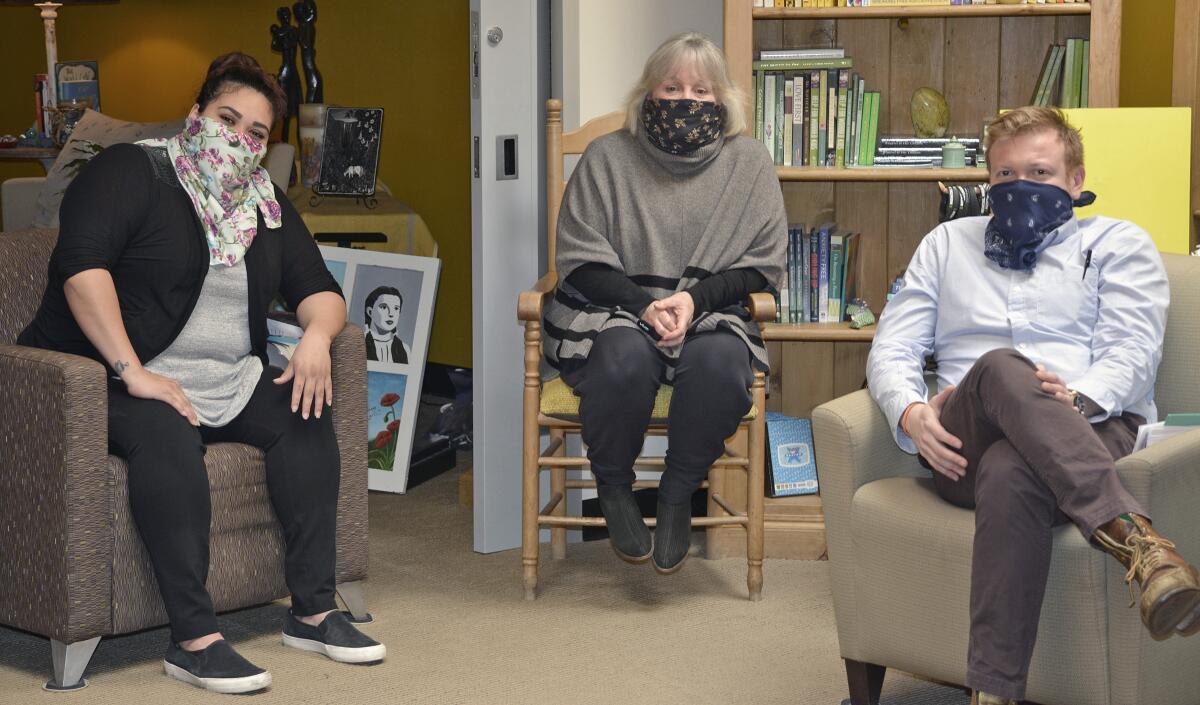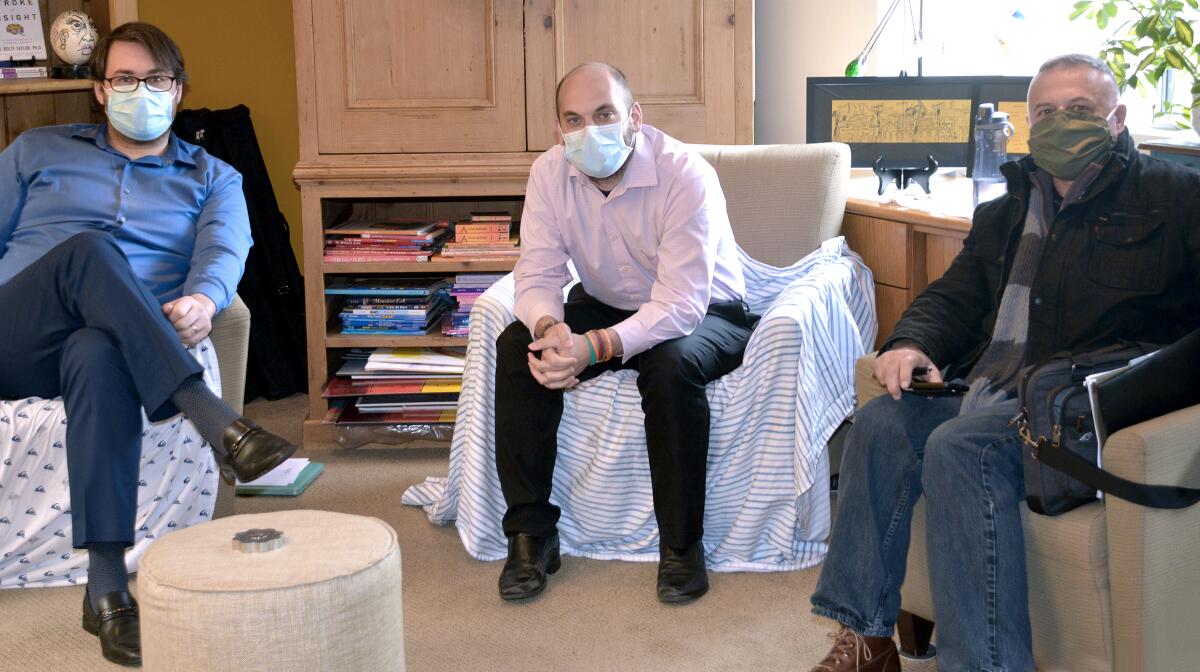On the Town: Family Service Agency quickly changing its service model during coronavirus pandemic

It is not out of the ordinary for Laurie Bleick, executive director of the Family Service Agency of Burbank, or FSA, to regularly meet with her staff in what she calls “leadership meetings.”
What is out of the ordinary is for the team to all be wearing face masks, seated 6 feet apart from one another, and discussing how to change their service model on the fly.
“We have quickly restructured everything we do,” said Bleick during a recent leadership meeting.
“For every service we offer that has been closed, we have opened new services. In some ways, it’s like we are opening a new business, and our entire team has been highly committed to those changes and to those we serve — those whose lives depend on what we do.”
What FSA does is provide quality counseling, care, education and advocacy at low or no cost, to local individuals, children, teens, couples, families and active and veteran members of the armed forces.
It also offers housing, crisis intervention, legal guidance, safety in the face of domestic violence and hope for those in the grips of mental illness, suicidal thoughts or substance addiction.
While this work is typically done on a face-to-face basis, George Holbrook, FSA’s clinical director, said in this new world of social distancing and quarantining, keeping in contact with the organization’s clients is of paramount importance.

“Our therapists are doing sessions and check-ins over the phone, and our clients have been extremely appreciative of that,” Holbrook said.
“Our clients are dealing with issues [such as] anxiety, depression, addiction — that are already in place and, in some cases, are being escalated due to our current situation. Keeping connected with them during this time, and in the difficult days that will come, is very important,” he added.
Among those who met in last week’s leadership meeting to brainstorm and share ideas for how FSA will continue to best serve its clients during the coronavirus pandemic, was staff member Angelia Cornelius who has a 5-month-old baby at home.
“I also have family members who have medical issues, so, while I am here because of my love for those we serve, I am also doing everything I can to be careful for me and my family,” Cornelius said.
Although Bleick’s face was half covered with a mask, her eyes still made it clear she was emotionally touched by Cornelius’ words.
“This is an extraordinary time. It’s a time of testing for us — a time for us to rededicate ourselves to our clients’ needs and to one another,” Bleick said.
“We will remain open and are going to redefine and build on what we are doing and what each new day brings. We will be constantly evaluating what we are doing, and we are now talking about how we will be implementing help in regards to dealing with financial difficulties that will result from this pandemic. It’s a new world that will demand a new level and field of service from us and all mental-health providers,” she added.
For more information about the services FSA provides or to offer financial help during this time, visit familyserviceagencyofburbank.org.
